The 1970’s was a particularly impactful and interesting decade for Heuer who had a lineup of iconic watches including legendary models like the Carrera, Silverstone, Autavia and Monaco among others. The 70’s was also when Heuer made the radical and forward-looking move into the world of digital movements.
One special watch, The Chronosplit, the one that began Heuer's foray into the digital wristwatch space is the one we’ll be taking a closer look at --the iconic Ref. 100-703 with its unmistakable and dual LCD/ and bright red LED display. Introduced in 1975 was truly a groundbreaking design and achievement. These have become increasingly rare vintage watches to find in working order as they were notoriously fragile electronic movements that were easily susceptible to battery/movement damage.

The Chronosplit was a totally different design direction for Heuer who didn't try to make these quartz solid-state based watches look like their existing line-up of mechanical movements, Heuer gave these watches their own unique design and celebrated the fact that these were ultra high-tech revolutionary watches --not cheap alternatives. The design direction was said to have been inspired by a trip Jack Heuer took to silicon valley when semiconductor development was making big new strides.
Watch our video for a hands-on look at the Heuer Chronosplit LCD/LED Ref. 100-703
Before the watch was introduced, Heuer developed the first groundbreaking digital stopwatch called the Microsplit 800 (seen below). This became the basis for a smaller wristwatch version that would ultimately become the Chronosplit. Since the Chronosplit was developed as a professional grade tool, with its ultra-precise chronograph function, it quickly made its way onto the wrists of many notable Formula 1 racecar driver’s hands who could rely on its accuracy such as Gilles Villeneuve (seen below)


Special Chronosplit Versions
Heuer also specially manufactured Chronosplits for Tiffany, Ferrari including the German military (-102-703-2 “Bund” Military version). These watches were produced in exceptionally low numbers, and models like these are ultra rare vintage watches and can easily exceed $8-10K USD.
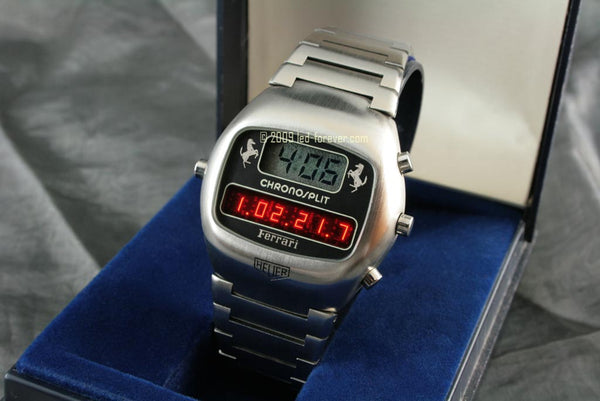
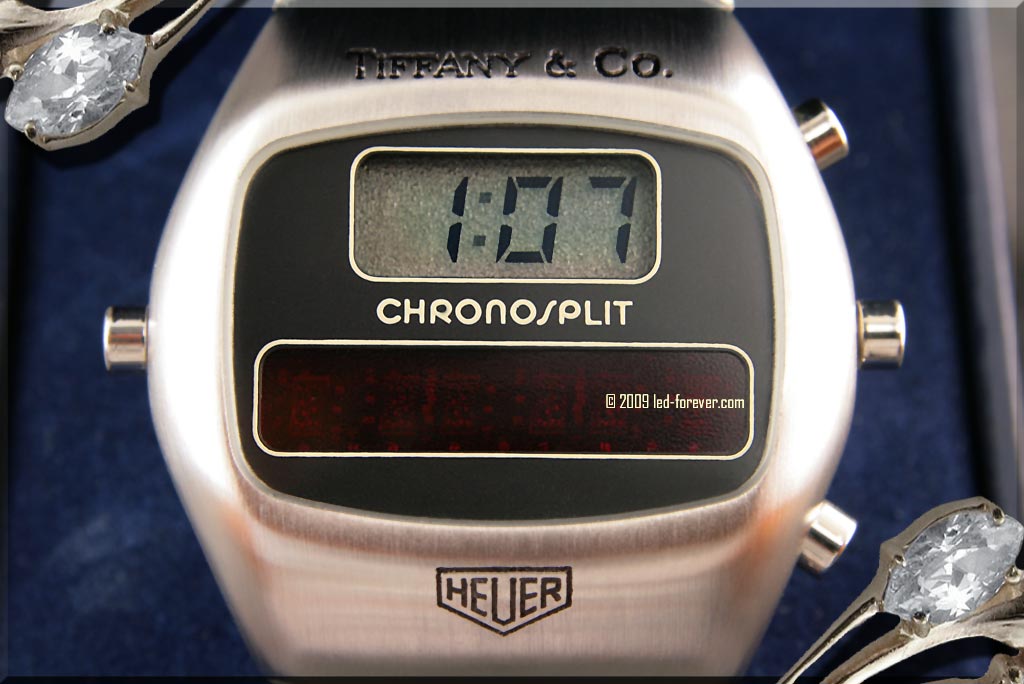
Ultimately, the LED’s electronic movement issues led to Heuer to change the design in 1976 and introduce the Ref. 102.703 featuring 2 LCD displays, which still had it’s similar issues of it’s own. For many, watch lost a big part of the cool factor of those unique, but power hungry, glowing red LEDs.
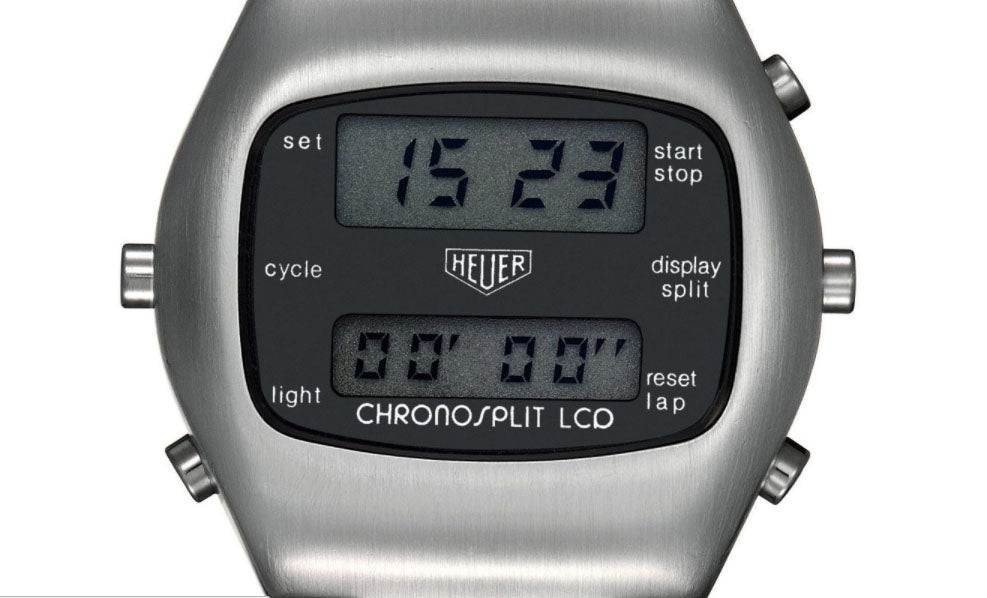
Other Chronosplits models included:
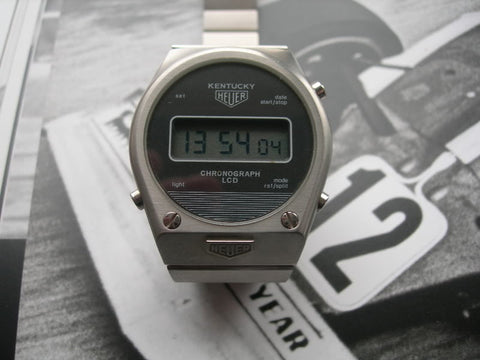
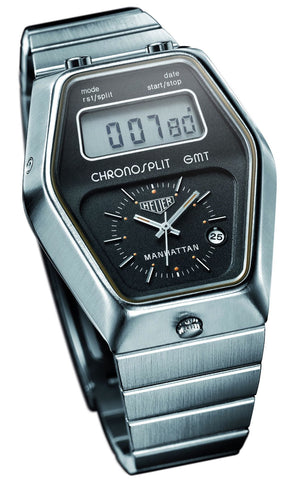
Heuer went on to release a number of other less memorable LCD based watches through late 70’s with the digital run finally ending in 1982. Eventually, digital, quartz and LCD watch technology became so cheap and commoditized that it was tough to justify paying a hefty premium on Heuer’s over-engineered versions when you could get the same performance and reliability in something a fraction of the price.
Buying a Chronosplit Today - Buyer Beware
As noted, given the delicate nature of the movements and susceptibility to damage, these vintage watches are getting tougher to find in full working order, not to mention OEM parts are extremely scarce. Be extra careful when shopping online where you will see many listed as “probably needs battery” or “simple fix”. The unfortunate reality is that 99% of the time a new battery isn’t the issue, and most of these are beyond repair and there is rarely a “simple fix” with these watches. Some have also been fitted with non-original equipment/hacked repairs so be extra careful with “working” models as well. It’s always best to buy from a reputable dealer no matter the watch. If you're one of the lucky few that have one of these cool timepieces consider storing it with the batteries out as they have a tendency to leak over time and corrode the circuits.
View our Heuer Chronosplit LED/LCD for Sale
Photo Credits:
LED Forever
Calibre 11
OnTheDash
Article By Ashton-Blakey Vintage Watches
Comments will be approved before showing up.
![Who Says Pocket Watches Are Only for Men? [NYT Article]](http://ashton-blakey-antiques.com/cdn/shop/articles/Screen_Shot_2021-03-11_at_10.00.10_PM_grande.png?v=1615518061)

Updated with VIDEO, Covering the past 5 Decades of Presidents.